Beatrice Fihn: How to implement the nuclear weapons ban treaty
By John Mecklin | December 7, 2020
Beatrice Fihn: How to implement the nuclear weapons ban treaty
By John Mecklin | December 7, 2020
Early in October 2017, about two weeks after US President Donald Trump called North Korean leader Kim Jong Un “Little Rocket Man” and began a tense nuclear standoff between the two countries, the Nobel Peace Prize was awarded to the International Campaign to Abolish Nuclear Weapons. ICAN, as it is commonly known, is a broad effort, a coalition that includes an array of partner organizations around the world, an international steering group, and a staff headquartered in Geneva, Switzerland. That staff is headed by Beatrice Fihn, ICAN’s executive director.
The Norwegian Nobel Committee honored ICAN “for its work to draw attention to the catastrophic humanitarian consequences of any use of nuclear weapons and for its ground-breaking efforts to achieve a treaty-based prohibition of such weapons.” Fihn told the New York Times she thought the call from the Nobel committee notifying her of the award was a fake. It quite certainly was not.
About three years after receiving that call, Fihn spoke with me at length about how the Treaty on the Prohibition of Nuclear Weapons might be implemented once it was ratified by the requisite 50 countries, an event expected to happen, at the time we spoke, within a matter of months. In fact, it occurred just weeks later, and the treaty will enter into force in January 2021.
The treaty was not supported by any of the nine countries that possess nuclear weapons, including the United States. Many of those opposed to the ban treaty have contended it is an unrealistic and naïve effort that could actually undermine nuclear nonproliferation efforts. US officials have been especially critical.
Here, Fihn lays out a possible future in which the ban treaty delegitimizes nuclear weapons, and nuclear weapons countries are persuaded to decide that it is best to give up the most fearsome weapons ever created—in those countries’ own interests.
John Mecklin:
My first question to you and your organization, ICAN: What do you plan to do for the next five years? You’ve had this amazing success, winning the Nobel Peace Prize. But what now?
Beatrice Fihn:
Well, we’ll see what this year takes us first. For us, what we’re looking towards now is, of course, the entering into force of the treaty. The TPNW [Treaty on Prohibition of Nuclear Weapons], the ban treaty, we’re now at 45 [country] ratifications, and when we hit 50, it will enter into force. We have a pretty good chance of getting 50 within one to two months, we think. So before the end of the year, possibly before this issue. And then of course according to the treaty, the entrance into force is 90 days after that. So hopefully early next year, we’re able to enter into force. So that’s when nuclear weapons will be banned under international law, which we are pretty excited about. Obviously it won’t have a direct, immediate sort of change on the situation in the world, but it’s a starting point for moving towards nuclear disarmament.
We’ve done a little bit of talking about comparisons to the Chemical Weapons Convention, for example, the major use of that during the first World War; [there were] 82 years between that and when the Chemical Weapons Convention entered into force. So just looking at that, the world doesn’t move fast, but it does move forward in some way. So I think that I probably would have a bit more maybe of a positive view for the next five years than other people have, seeing this as a potential breaking point for nuclear weapons. With the whole modernization programs, unraveling of arms control treaties, Trump in power for almost four years now, a new nuclear arms race—this has all been extremely dangerous and destabilizing. But it has also, we feel, mobilized a new movement against these weapons.
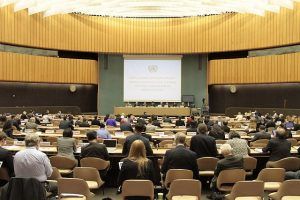
And we’re trying to sort of remind the people that this issue still exists. This is still dangerous. These weapons are still around, and we’re really hoping that the treaty, and the progression will be the starting point of moving away from these weapons. Creating a new norm, implementing the treaty—in many ways, it’s just building normative pressure, building financial pressure through divestments.
I see a lot of people really, really evaluating things during this year. What is it that we prioritize? And what is security? How come 200,000 Americans are dying from a pandemic, and we are still investing $35 billion in nuclear weapons? The structures that people in power have built to protect us, such as the police force and nuclear weapons, actually harm people and kill people. Both through police violence, through nuclear testing, for example. So I see a lot of possibilities for the next term to really start questioning the decisions our governments have made on our behalf around these things.
John Mecklin:
It seems that once the treaty goes into force, lots of opportunities for what I call guerilla international politics are opened; there’s a treaty now, and you can start to take different kinds of collective actions. I just wondered, what do you see in that regard? I could think up all sorts of things to do with trade sanctions, all sorts of things. Are there opportunities for that kind of thing, or is it more just, “We’re going to try to persuade?”
Beatrice Fihn:
I think we have to be realistic. Ideally, we would want governments to take very strong measures and threaten to boycott if this doesn’t work. But in reality, of course, it’s the big economic powers that have nuclear weapons. And many countries are very dependent on them, and it wouldn’t be realistic to think that a small country in Africa can boycott the nuclear weapon states in that way. But I definitely think that there are a lot of potentials for action. First of all, I think we need to reckon—I think particularly in the West, in Europe and maybe North America—how the power dynamics in the world are changing quite rapidly. And this idea that we in the West are the center of the power in the world might not hold for very long.
For example, I was just looking at the biggest countries in the world. And in the top 10 of the biggest populations in the world, you have five nuclear arms states and five countries that have been leaders in the TPNW. And those are also the ones that are growing. A country like Nigeria, for example, is predicted to be one of the biggest economies in the world in 50 years. It’s predicted I think to surpass China in population by 2080 or something like that. It’s really becoming not just a regional power, but it’s going to become a global power. We see countries like the UK and France very rapidly losing influence in the world and becoming sort of medium-sized countries rather than leaders. We see the US imploding in many ways and also on the international arena.
So I can also see an emergence of a new power structure. This treaty in many ways is that a lot of countries are basically banning the power tool of the [UN] Security Council. And I think that’s going to have some very significant impact. But in practical terms, what we’re hoping for is, of course, that this treaty stands next to the Chemical and Biological Weapons Convention, like the bans on all weapons of mass destruction. This completes the treaty or treaties, in a way. So that the political pressure and the reputational cost of countries that don’t join this treaty is increased. We’re looking to focus quite a lot on the divestment side, making sure that banks and pension funds are pulling their money out of producing companies. And we’ve seen that influence on landmines and cluster munitions; they have quite a concrete impact in reducing companies’ willingness to be involved in these practices.

John Mecklin:
Have you seen any positive moves in that direction as yet? In terms of banks, pension funds?
Beatrice Fihn:
Absolutely. Every year we do this “Don’t Bank on the Bomb” report that shows that it’s growing, the number of banks that have policies against this. We’ve seen just this year, the Norwegian Oil Fund, for example, pulled out of nuclear weapons companies and referred to the TPNW as a reason. One of the super banks in Japan, Mitsubishi Bank Group, or whatever they’re called. They adopted a new policy. Deutsche Bank last year adopted a new policy with nuclear weapons after work with ICAN in Germany. The Deutsche Bank [policy] wasn’t flawless, there’s some holes still, but it’s a sign that they are reacting to this.
So we have two of the five biggest pension funds in the world, the Dutch Pension Fund as well, the public one. We’ve been working on the local cities initiative as well, trying to see if the whole trend on the climate change issue and other issues as well, that cities are taking sort of international action and seeing themselves as almost actors on an international stage. We have over 400 cities around the world now, including I think something like 30 cities with over a million people, that have joined this call to action and that are supporting the treaty and calling on their national governments to join. And we right now have a motion in the New York City Council where we have a super majority. They just postponed the voting because of COVID. But as soon as it goes up for voting, it should be no problem getting it approved.
But New York City is supporting the TPNW. And it’s going to divest the city pension funds from nuclear weapons users. So we’re working with all these different actors as well, to really mobilize and surround the nuclear arms states and their allies from all different sides, from the political side, from the international side, from parliaments domestically, from public opinion, from finance sector, to make it more difficult, more problematic, more of a burden to have nuclear weapons. To really just change the calculation of benefit for these weapons.
John Mecklin:
It’s an interesting strategy. How I look at the nuclear weapons situation is that in all of the major countries where nuclear modernization is going on, it’s driven largely by military industrial complex calculations, right? There are so many jobs and so much political benefit and so little political downside that it’s just almost self-driving. Do you think the political pressure and financial pressure you’re talking about can really counterbalance that?
Beatrice Fihn:
Eventually, I think. It’s obviously a long way to go. And I think it will be different in different countries, as well. But I think that in keeping with this current financial crisis we are in now, and I don’t think we really fully understand how much of a financial impact the COVID has—2021 is the year where the budgets are being set now. That’s when the tax money no longer is enough for a lot of governments. So I think it’s possible. It’s very hard to convince someone like Trump or Kim Jong-un to get rid of their weapons, just with arguments. I think it has to be a mix of things. It has to be a concerted effort from many different fronts.
And the financial side and the public pressure side is one part of that. And it’s something that we can control, and we can have an impact on. Basically, it’s been way too easy to have nuclear weapons. If you think about the way people treat North Korea now, with a lot more status and prestige, and it’s one of the most important countries in the world suddenly, even though it’s extremely poor, very little developed, abysmal human rights record. Somehow the Singapore Summit became a big sort of welcome party to the powerful club in the world. It’s been too much prestige connected to nuclear weapons.
So what we’re trying to do is chip away at that and move forward and increase the cost. And can I guarantee they will increase the cost enough for it to lead to disarming? Of course not. But we’re constantly trying to go higher and higher.
John Mecklin:
The Bulletin has a very young audience. Half our readers are 35 or younger. So knowing that, what would you say to people under 30? I have found that the nuclear issue has not been as salient to younger folks as say climate, or some other major global threats. A, how do you think all of us can raise the level of understanding and concern among younger people in this? And B, why should they take nuclear weapons into their basket of highest concerns?
Beatrice Fihn:
Well, I think that nuclear weapons has been so, almost isolated as its own separate topic that’s disconnected from the rest of the world. It’s something people have had difficulty seeing and feeling. We can sort of see Trump and Kim Jong-un sharing threats on Twitter, but it doesn’t feel real to people. In the same way as climate change feels real and people can connect their own behavior, their own lights, their own cars. Nuclear weapons are much more invisible, I think, in your daily life. Then of course it’s also been seen as an issue that’s not possible to solve, people have given up a little bit on it. And it is very hard to ask people to throw themselves behind a cause that you tell them also is impossible.
So I think a lot of the fault is from the community that has worked on these issues. We are so extremely negative and talking about it in terms of things we cannot control. I mean, the conversation around nuclear weapons is so focused on the leaders of the nuclear arms states, on how hard it is and how bad everything is. And it’s basically telling a new audience that this is impossible. Even I, who know this issue, thinks it’s impossible. So why bother? So I do think that it’s a bit of, we’ve given the sense of hopelessness almost, which is understandable on a personal level when you struggle with something and you feel like it’s going in the wrong direction.
But I think that if you look at it from just another perspective, this is an issue so solvable. I mean, it’s a lot easier to solve than climate change. It’s nine states. It’s not the whole world, it’s nine states that have them. And to be honest, the military activities that countries are doing today are not based on nuclear weapons. They’re extremely clumsy, they’re not smart weapons. The military is going into a high-tech direction, which is a whole other thing that we need to also talk about. This is very old fashioned, wiping out a whole city and releasing radioactive fallout. It’s not the best strategy in any kind of warfare situation.
So I do think that by shifting the perspective of nuclear weapons, you could actually see that this issue isn’t that hard to solve. And I think for me, that is one of the reasons why I focus on it. I think also in terms of engaging a younger audience in this, is to draw the connections and highlight how this is all connected to power and holding power. A small group of actors are holding power and oppressing the larger majority. For people like me, for example, I’m Swedish. I live in Switzerland. Me and my family and my two countries will also die in nuclear war if there’s nuclear war. Yet, I don’t get a say. In that way, it’s much like climate change. What one country does, it’s not their own business.
So I think it’s also connected to this idea of power and how some powerful will always try to keep the benefit for themselves, to oppress others with that power. And this as an issue that is connected to economic inequalities, sexism, racism, the disproportion in the way we use public funding and tax money in terms of protecting people—like taking the money from things that actually protect us, health care right now, education that will actually make people safer. Yet we divert it towards nuclear weapons and a hugely inflated military budget.
So I think that’s sort of what I would like to say to young people.
Also, of course, it’s very hard for people to take an abstract thing and feel a sense of urgency. And that is something that the climate change movement have also struggled with. How do you make people feel like we need to do something now, when you can’t see it or feel it yet? And being here in Geneva, where the WHO, I have a lot of friends who worked in WHO and I used to work with it on bioweapons, so we talk a lot about pandemics in my career before. I had heard for over a decade in my work here, experts saying that there will be a pandemic. They’ve been very clear on this. And of course, in the Bulletin, you’ve published things on this as well.
John Mecklin:
Yes. Year after year.
Beatrice Fihn:
Experts have said, “Yeah, there will be a pandemic. It’s going to be bad. We don’t know exactly when, we don’t know exactly how lethal or deadly it will be, but it’s going to come.” And like the Bulletin says, the experts on this, there will be eventually a nuclear weapons use if we don’t deal with this. The risk of nuclear weapons use is increasing. The doomsday clock is getting closer. So it’s same thing with climate change. The scientists, experts have been saying this since the 60’s and 70’s: Climate change is happening, it’s going to be really bad. And I think it’s human nature to avoid, postponing those things that we can’t see. We’re not very good at preventing things. We’re good at taking action once it happens, but we’re not very good at preventing things.
But when it comes to nuclear weapons, there is no after. It is impossible to address the consequences and provide meaningful and significant aid in an aftermath of nuclear war. So it’s really a responsibility for everyone to not let that happen.
John Mecklin:
I want to go back to something you raised before, this notion that there are advances in other technologies that actually are making nuclear war more likely. Artificial intelligence, some cyber kinds of things. That’s already a tremendously difficult problem, being made more difficult by the advance of technology.
Beatrice Fihn:
Well, I think that it’s really funny you say that, because with all these new technologies you can hack missiles maybe, you can hack early launch systems, you can manipulate data to make it look like an attack. You can even do deep fakes that makes it look like there’s an incoming missiles, all these things. We could just create a scenario where deterrence doesn’t work anymore. Even if you believe in deterrence, the future will look very different. And you could even trigger situations where it would look to the military advisers and presidents and prime ministers, like an actual advantage to go early with nuclear weapons and go first, in a very unpredictable scenarios.
So I think it’s extremely relevant to talk about these emerging technologies, particularly with algorithms and machine learning, how we might be in a situation where some of these nine governments are unleashing this new technology without fully thinking through all the potential consequences of that. And coupling that technology with this extremely dangerous nuclear weapons that cannot be recalled and where emergency relief organizations cannot help after they’ve been used. And that is just an extremely dangerous scenario.
John Mecklin:
Yes, it is. But I don’t want to end our talk on anything that negative. So I’m going to give you an opportunity to lay out your plan. Okay, if you had the power, if you became President of the United States or Russia, over the 5, 10, 20, 25 year range, what would be the right path? How would we get in a practical sense to near zero? And then if we got these arsenals down to a few hundred each, how do you go from there to the actual zero that the world needs to be safe?
Beatrice Fihn:
I think it’s really important to delegitimize nuclear weapons and devalue them. We’ve almost created this mythical perspective on these weapons, that they somehow are safeguarding the world and that they somehow have all these magical attributes, which isn’t true. It’s just a really giant radioactive bomb. It’s not magic, it’s not special. And it costs a lot of money and it’s very dangerous to the countries that have them, and it makes you a target of nuclear weapons. So I think it’s really important, for nuclear arms states also, to understand that the more value that’s put into nuclear weapons—both symbolic value and money value—the more vulnerable you are also to other countries getting that weapon.
I mean, we’ve seen that, for example, in terms of actual power in the world, North Korea and the United States are very far away from each other. But somehow, it’s almost become like they are equals because they have nuclear weapons. Well that’s an extreme power that a country like the United States gives to any country that wants to have nuclear weapons. There’s no question that the US is the biggest military power in the world. There is no other country that can match the military power of the United States, with or without nuclear weapons. It is the country in the world that needs nuclear weapons the least.
I think what’s extremely important is that we look also, again, at research and science and see that societies that have a lot of weapons, that invest a lot of money in weapons, are less secure and safe than societies that invest a lot in health care, education, equality, for example. And these are always seen as soft issues, unrelated to national security. We really urgently need leaders who are smart, who understand how to protect their people. And protecting their people is not through spending hundreds of billions of dollars on weapons.
Again, the United States have just lost 200,000 people to a pandemic. I think this crisis has shown us that the best leaders are the ones who are thinking long-term, are thinking about what their people’s needs are. And they are the ones who also succeeded in keeping deaths down and actually protecting their people.
We are never going to get to zero nuclear weapons as long as we think that these weapons are necessary for protection. So we need to break this view of what it is that we’re protecting, in the same way as for example, the Black Lives Matter movement is starting to question if the police actually protects people or if it actually harms people. That kind of change of mentality needs to happen in the public with our political leaders, to really start reevaluating what our priorities and how national security is built today.
Together, we make the world safer.
The Bulletin elevates expert voices above the noise. But as an independent nonprofit organization, our operations depend on the support of readers like you. Help us continue to deliver quality journalism that holds leaders accountable. Your support of our work at any level is important. In return, we promise our coverage will be understandable, influential, vigilant, solution-oriented, and fair-minded. Together we can make a difference.
Keywords: ICAN, TPNW, Treaty on the Prohibition of Nuclear Weapons, nuclear ban treaty
Topics: Nuclear Weapons

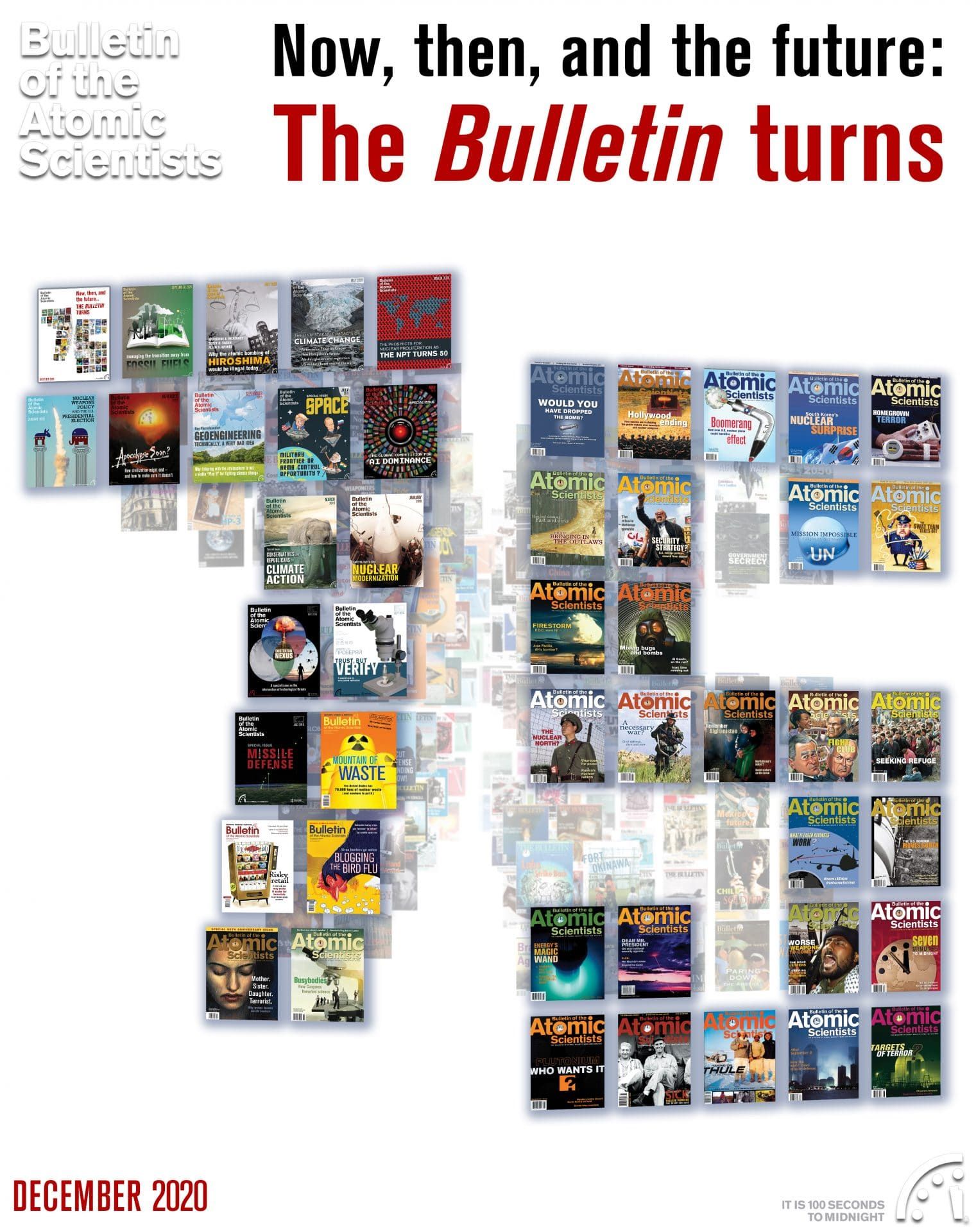

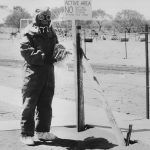




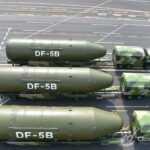

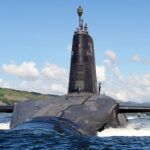


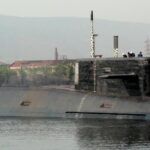








Very optimistic about the new treaty! Thank you for this thoughtful discussion. My comment is that we are tending to overlook the driving force of the nuclear weapons contractors and their attachment to our tax dollars!!
More conferences related to the current status of enter into the force shall be organized in many part of the world particularly in many large cities including many in the US – it must become fully known to the public Many do not even know about this significant development The media in the west are so silent about it which is disturbing When was the subject of the Ban Treaty ,for example, discussed within CNN , ABC , CBS NBC of Fox News in USA? We had some success when introduced it within The State of California Assembly. Hi Tech… Read more »
One concrete step could be to move NPT Review Conferences out of New York – located in a nuclear-weapon State that benefits financially from some 300-400 attendees at a review conference – to Vienna (Austria), where both the IAEA and the CTBTO are co-located and perform key functions related to the NPT, non-proliferation and nuclear disarmament, and in moving to Vienna also reduce the carbon footprint of international air travel compared to flying to New York.
The world federalists, like Einstein, have been right all along — to eliminate the danger of a nuclear nightmare we will need a world federal government. That’s the importance of the Democratic World Federalists call for UN Charter Review to replace the fatally flawed UN Charter with the Earth Constitution. If we want a world to be truly safe we must Federate the nations. There is no shortcut. Treaty-based approaches like the Nuke Ban are helpful, but obviously inadequate. The history of treaties between nations is like building on quicksand. A world constitution to replace the failed UN Charter is… Read more »